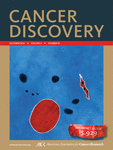- EN - English
- CN - 中文
Differentiation of THP1 Cells into Macrophages for Transwell Co-culture Assay with Melanoma Cells
THP1细胞分化成巨噬细胞及与黑色素瘤细胞的跨室联合培养试验
发布: 2015年11月05日第5卷第21期 DOI: 10.21769/BioProtoc.1638 浏览次数: 50141
评审: HongLok LungNicoletta CordaniAnonymous reviewer(s)
Abstract
Understanding how immune cells such as macrophages interact with cancer cells is of increasing interest, as cancer treatments move towards combing both targeted- and immuno-therapies in new treatment regimes. This protocol is using THP-1 cells, a human leukemia monocytic cell line that can be differentiated into macrophages. This allows studying the effects of the macrophage secretome on cancer cells (on e.g., growth, drug response or gene expression) in co-cultures without direct cell contact interactions. This is an important aspect as it removes the presence of any phagocytic aspect to changes in the cancer cell number and behaviour. The in vitro THP-1 monocyte differentiation into polarized macrophages was used to study the effects of both M1 and M2 type populations of macrophages on melanoma cells (Smith et al., 2014; Tsuchiya et al., 1980). M1 type macrophages are classically thought to be tumour suppressing as opposed to M2 type macrophages, which are thought to possess tissue repairing and tumour growth promoting activities.
Keywords: Co-culture (共培养)Materials and Reagents
- Transwell inserts 0.4 μM (BD Biosciences, catalog number: 353493 )
Note: Currently, it is “Corning, Falcon®, catalog number: 353493 ”. - Sterile 15 ml centrifuge tubes
- 20 µl and 1 ml tips
- Corning® 6 well cell culture plates (Sigma-Aldrich, catalog number: CLS3516-50EA )
- THP-1 cells (ATCC, catalog number: ATCC® TIB-202TM )
- Foetal bovine serum (500 ml) (heat inactivated by manufacturer) (Thermo Fisher Scientific, GibcoTM, catalog number: 10500064 )
- Penicillin/Streptomycin soln (100x) stabilised (100 ml) (Sigma-Aldrich, catalog number: P4333 )
- Dulbeccos PBS (1x) w/o Ca2+ or Mg2+ (500 ml) (Sigma-Aldrich, catalog number: PBS2541 )
- Trypsin-EDTA (1x) (100 ml) (Sigma-Aldrich, catalog number: T3924-100 ml )
- EDTA disodium salt AR E (500 gm) (Thermo Fisher Scientific, Fisher Scientific, catalog number: FKCF/0700/53 )
- DMEM w/L-Glutamine, Pyruvate & sodium bicarbonate (500 ml) (Sigma-Aldrich, catalog number: D6429-24x )
- RPMI 1640 w/L-Glutamine-Bicarbonate (500 ml) (Sigma-Aldrich, catalog number: R8758 )
- 12-O-tetradecanoylphorbol-l3-acetate (PMA) (Sigma-Aldrich, catalog number: P1585 )
- Recombinant human interferon type gamma (IFN-γ) (Peprotech, catalog number: 300-02 )
- Recombinant human interleukin 4 (IL-4) (Peprotech, catalog number: 200-04 )
- Recombinant human interleukin 13 (IL-13) (Peprotech, catalog number: 200-13 )
- Lipopolysaccharides from Escherichia coli (Sigma-Aldrich, catalog number: L2630 )
- DMEM/FCS media (see Recipes)
- RPMI/FCS media (see Recipes)
- IL4 stock solution (see Recipes)
- IL13 stock solution (see Recipes)
- IFN-γ stock solution (see Recipes)
- PMA (see Recipes)
- LPS (see Recipes)
Equipment
- Benchtop Centrifuge
- Aspirator
- Haemocytometer
- Tissue culture hood
- CO2 incubator
Procedure
文章信息
版权信息
© 2015 The Authors; exclusive licensee Bio-protocol LLC.
如何引用
Smith, M. P., Young, H., Hurlstone, A. and Wellbrock, C. (2015). Differentiation of THP1 Cells into Macrophages for Transwell Co-culture Assay with Melanoma Cells. Bio-protocol 5(21): e1638. DOI: 10.21769/BioProtoc.1638.
分类
癌症生物学 > 肿瘤免疫学 > 细胞生物学试验 > 细胞分离和培养
您对这篇实验方法有问题吗?
在此处发布您的问题,我们将邀请本文作者来回答。同时,我们会将您的问题发布到Bio-protocol Exchange,以便寻求社区成员的帮助。
Share
Bluesky
X
Copy link












